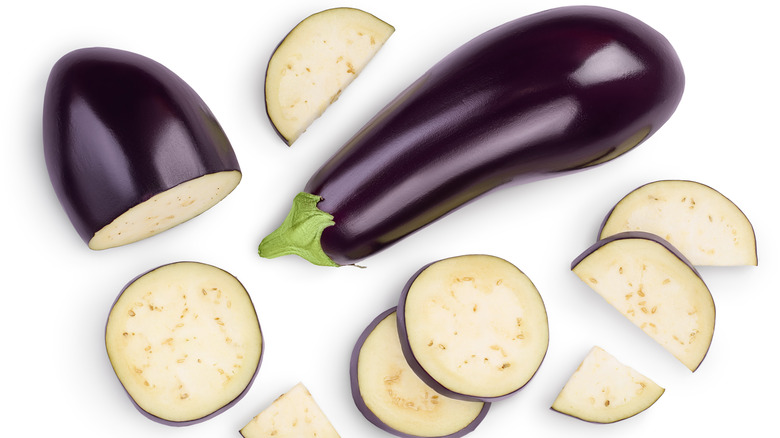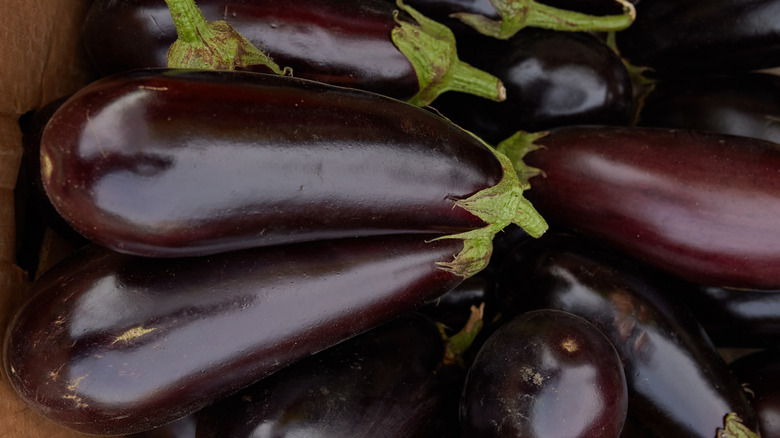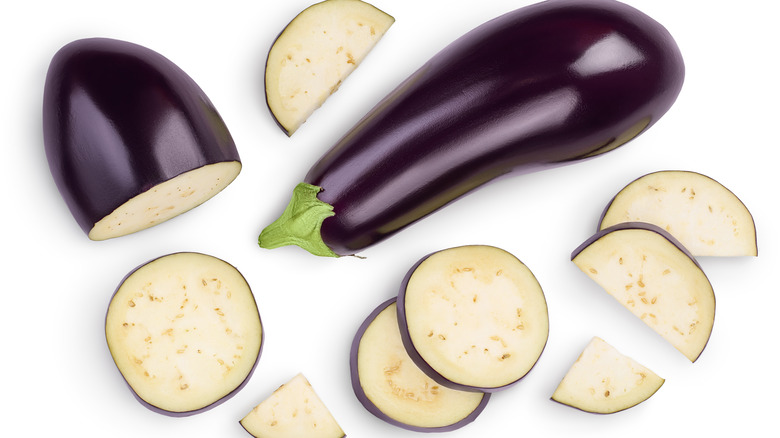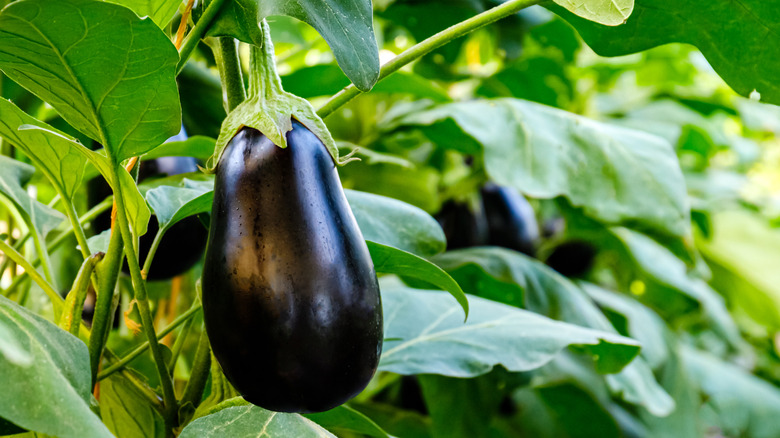How To Keep Eggplant Fresh
The eggplant is the fifth most produced vegetable in the world, according to Statista data, although they're technically considered fruits (via Business Insider). Some people may be a bit hesitant to explore the popular purple produce, but once they've experienced it in a drool-worthy eggplant parmesan recipe, or tandem with serrano peppers and ginger in a spicy Chinese eggplant recipe, they're often sold on its tangy flavor.
For those looking to expand their at-home gardens, eggplants are also gratifying to grow. Gardening Know How provides easy tips for planting and care. One major plus to growing eggplants is that some animals such as deer will rarely damage them, which doesn't hold for many other vegetables such as spinach, according to the University of Connecticut.
Whether you're growing your eggplant or purchasing it from a store or local farmers market, this question is likely on your mind: What is the best method to keep it fresh? Here are the best ways to ensure you get the most out of your aubergine.
Eggplants like room temperature
A common misconception about eggplants is that they must be kept in the refrigerator. But, you should think twice before storing them in cold temperatures. According to Kitchn, eggplants are best kept at room temperature, such as on the kitchen counter. The produce is quite sensitive to the cold, so keeping them out of the refrigerator will help prevent them from the unwanted side effects that come with frigid temperatures. Cold weather injuries that can impact eggplants include the skin turning a bronze color or the pulp and seeds becoming brown. These conditions happen at temperatures lower than 41 degrees, and the Food and Drug Administration recommends keeping refrigerators at or under that 40-degree mark.
Since eggplant is in the nightshade family, WebMD notes, it should be treated similarly to others like it. Examples include tomatoes, peppers, and potatoes — all of which are best stored in room-temperature conditions, according to Purdue University.
You can refrigerate eggplants for three days maximum
Even though refrigerating an eggplant might not be the best method, don't rule it out entirely. If you're certain you want to store it in colder temperatures, Kitchn says to only let it sit in the fridge for a short period — no more than three days. Then use it as soon as you take it out.
Purdue University backs up this claim, stating that the purple produce can be refrigerated as long as they are removed and used within one to three days. PureWow offers tips for those planning to use this option, suggesting wrapping the eggplant in a paper towel and storing it in a hard container. An open plastic bag is also an option, but the container will help protect it from bruising. From there, store it in the refrigerator's crisper drawer and keep it away from other fruits and vegetables.
Store eggplants in a shady cupboard or pantry
If you have room in a cupboard or pantry, Kitchn recommends you store eggplants in there. This comes in handy in the summer, when your kitchen might be warmer than usual. This storage method offers more shade and thus may stay cooler than the kitchen counter. Plus, it can keep them far away from any produce that might produce ethylene, which eggplants are sensitive to, Kitchn also notes. If you plan on using this tip, make sure to leave the eggplant uncovered; otherwise, it may decay.
Finally, getting the most out of your eggplant starts with choosing the best one. If you're buying from the grocery store, PureWow suggests checking the eggplant's weight and skin. The better the eggplant, the denser it will be, so make sure to compare a few and choose the one that feels heaviest (this depends on size, too, of course). As for the skin, test for smoothness, sleekness, and firmness. Plus, make sure there are no unsightly shrivels or pits on its exterior.
If you use these tips to store your eggplant correctly, some delicious eggplant parmesan might just be in your future.



